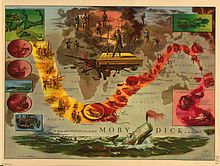Hardly an hour goes by without some pundit pushing the possibility of some kind of run away inflation, with Zimbabwe and Wiemar rolling off the tongues of ordinary Americans everywhere. And Congressman and candidates of all persuasions continuously lambaste the Fed for debasing the currency.
…
For all practical purposes the Fed has done it all. And yet unemployment remains at depression levels of over 9% (and over 16% the way it used to be calculated not long ago) and the only thing keeping what’s called ‘inflation’ over 1% is a foreign monopolist supporting the price of crude oil.
So if inflation is this ominously lurking around every corner that requires eternal vigilance to keep from suddenly rearing it’s ugly head, why have all the Fed’s horses and all the Fed’s men not be able to inflate again? And why would anyone still think they can? I mean, we’re talking about college graduates with advance degrees and resources and power up the gazoo doing everything they can to reflate, and still failing after 3 long years? Not to mention the same in Japan for going on 20 years, where they have college grads with advanced degrees as well (though pretty much from the same schools).
Maybe this inflation thing is harder to get going than it looks? And what did go on in the German Wiemar republic, where if you parked a wheelbarrow full of money thieves would take the wheelbarrow and leave the money? Turns out it was those pesky war reparations that caused govt. deficit spending to soar to something like 50% of GDP annually, with most of that whopping deficit spending used to sell the German currency and buy foreign currency to pay their war reparations. As expected, that drove their currency down the rat hole in short order, and kept driving it down, causing that famous bout of hyper inflation that didn’t end until that policy ended. And when all that ended and policy changed the inflation stopped dead in its tracks. In one day. So how about Zimbabwe? Turns out they had a tad of civil unrest that dropped their productive capacity by about 80%, but govt. spending stayed high and too much spending power with too few goods and services for sale drove prices through the roof. Not to mention rumors of insiders using the local currency to buy foreign currencies for personal gain (sound familiar).
Applying this to the US to replicate the Wiemar inflation Congress would have to increase the deficit to about $8 trillion a year and then sell those dollars continuously in the market place, using them to buy the likes of yen, euro, and pounds. And replicating Zimbabwe would mean some kind of disaster that wiped out 80% of our real productive capacity and then continuing to spend federal dollars as if that never happened.
…
What all this tells me is that run away inflation, whatever that might mean, isn’t something hiding around every corner waiting to pounce. In fact, it takes a lot of work to get there, and not from the Fed, but from Congress. And not just what we’d call high levels of deficit spending, but ultra high levels of deficit spending.
I have no fear whatsoever of the Fed causing inflation. In fact, theory and evidence tells me their tools more likely work in reverse, due to the interest income channels. That’s because when they lower rates, they are working to remove net interest income from the private sector, and when they buy US Treasury securities (aka QE/ quantitative easing) they remove even more interest income from the economy. Remember that $79 billion in QE portfolio profits the Fed turned over to the Treasury last year? Those dollars would have otherwise remained in the economy.
So what’s the fundamental difference between what the Fed and can do and what Congress can do? The Fed can’t create net financial assets because they only buy, loan, and otherwise traffic in financial assets. Buying a bond or any other security only exchanges one financial asset for another and therefore doesn’t change the nominal (dollar) wealth of the economy. When the Fed buys a security, that security is no longer held by the economy. The Fed gets the security and the economy gets an equal dollar balance in a Fed account. The exchange is done at market prices so for all practical purposes it’s a equal exchange.
When Congress spends, however, it usually buys real goods and services, and not securities and other financial assets. So when the exchange takes place, Congress gets the real goods and services, which are not financial assets, and the economy gets dollar balances at the Fed, which are financial assets. So spending by Congress adds financial assets to the economy, to the penny, making it very different from what the Fed does.
And note that when the economy buys Treasury securities, all that happens is that the dollar balances the economy has at the Fed in what are called ‘reserve accounts’ get move to dollar balances in what are called ‘securities accounts’ at the Fed. Dollars in securities accounts and reserve accounts are all dollar financial assets. So shifting back and forth doesn’t change the dollar nominal wealth of the economy.


Recent Comments